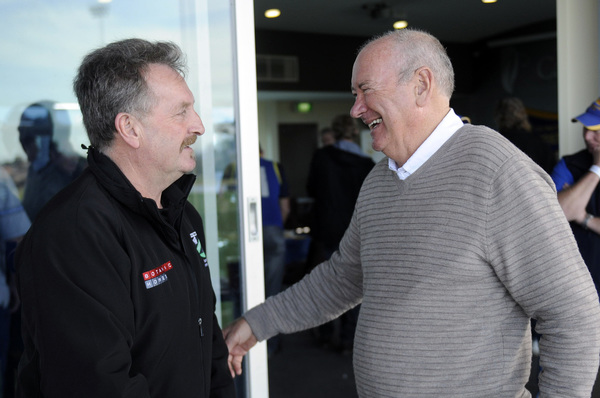
By sports editor Russell Bennett
It wasn’t all that long ago that the Doves and the Eagles ruled the south-eastern skies together, and their rivalry was as thick as the blood that often flowed out on the ground.
Cranbourne and Doveton’s community football story is as famous as it is infamous, but what underpins it all is a genuine, hard-earned respect between two of the hardest clubs of the ‘80s and ‘90s.
The stars of that show were characters of the community hardened by the streets they grew up on and the neighbourhoods they proudly called home. They were loyal as the day is long, and the first to acknowledge when they’d been beaten, fair and square.
And if any side was to beat either Cranbourne or Doveton, its players would have to roll the sleeves up and be just as hard and unflinching at the contest.
It was the Doves who led the way from the late 1970s to the late 1980s in South West Gippsland, before the Eagles assumed their mantle after learning from, and ultimately beating, the best.
The Doves won the senior SWGFL flags in 1979, 1982, 1983, 1984, and 1988 in an astonishing era as an uncompromising force.
The Eagles claimed their own three-peat from 1985 to 1987, before the Doves famously fought back to snap their quest for four in a row (1988).
Still starving for more success, Cranbourne then claimed another three on the trot from 1989 to 1991, before also winning in 1993, and again in 1995 – the club’s first season in the MPNFL.
In the 11 seasons from 1985 to 1995, Cranbourne won eight senior flags, finished runner-up twice, and also finished in the top four on another occasion.
Staggeringly, of those eight premierships, five came against Doveton.
But in the early 1980s, the Eagles were on their knees – scraping together what they could to even survive as a club.
Their turnaround in the space of just a couple of seasons is the stuff of legend, and it’s fitting they had legendary leader Darryl Nisbet at the helm of the senior side.
The lasting legacy he left at the Eagles was truly a transformative one – in the eyes of everyone he even came into contact with at the nest back then.
“We had to rise – we didn’t have a choice,” he explained to the Gazette.
“The club was on its knees and owed a lot of money.
“Doveton, meanwhile, was winning premiership after premiership. They came out of the Federal league and that toughened them right up as a club – not that they needed it.
“When they came back to our comp (the SWGFL), they were a real force.
“They were hard as nails and had a way about them – their culture and code of conduct on the footy field was terrific. It was everything you’d wish for from a footy side – tough, hard, skilful, fast, uncompromising. They embodied all the things you’d try and instil in your own side. They had it all in bucket loads.”
The Eagles learnt from the best.
“Cranbourne was the sort of side that could beat anyone on its day, and then have three weeks off celebrating!” Nisbet admitted with a laugh.
“They were a dead-set country footy team. When I coached Berwick against them, they’d always have a breaking point. If you stayed with them, you knew you could get them in the end – you’d feel them go on you.”
Nisbet said “in every way” the club had to toughen up, but through stalwarts like Graham Kelsall and Tony Clarke, they had the perfect characters to lead the way.
“Graham Kelsall was terrific with that because he’d seen some good times and he was the player marked by all the opposition to nail,” Nisbet said.
“If you shut him down, you’d shut down the side.
“We had to improve across the board so it wasn’t just left up to a few blokes.
“We only just had enough players, so if you picked up any injuries you were buggered.
“Blokes like Tim Ostrom and (Andrew) Boo Dalgleish – they ended up becoming champions of the club.
“’Brutus (Steve Dalgleish) had come back from Hawthorn – he was the best player in the comp for the time I was at the club.
“They were all just great days.
“You’d want your blokes to have the best times of their lives while they were playing for you. That’s just what you’d try and create. The fitness and the discipline, that was one thing, but if the players didn’t want to be there it wouldn’t have worked.
“Everyone wanted to play for the cause – from the thirds, to the experienced senior players.”
Nisbet spoke about the Eagles “cartwheeling” Doveton players as a way of stopping their run, and giving away more than a few free kicks as a way of paying the price for sending a message.
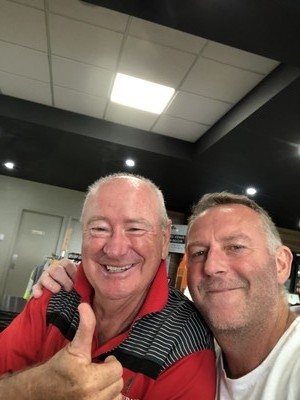
One of the renowned hard men in Doveton Football Club history, Stu Batten is as well placed as anyone to talk about the influence Nisbet had over the local footy scene – particularly the Cranbourne and Doveton rivalry through the mid-1980s.
He grew up around his beloved Doveton, with his father an absolute icon of the place.
“My first senior year was 1987 and we lost to Cranbourne, then we won ’88, got beaten in a prelim in ’89, and I got suspended in the second semi in 1990 and missed that grand final, then they beat us again in ’91,” he recalled.
“You either win or you lose those, but back then you’re thinking you’re never not going to play in a grand final. We were just that blessed – we played in them every year, it felt like.”
Batten said he, and the other Doveton players of those days, knew full-well the intimidation factor they had over opposition sides.
“I don’t mean this as disrespect to any of the other sides, but they were intimidated by us – you could see it,” he said.
“They thought we were really loose and unpredictable, but it was more the way we were brought up – we had to fight for everything we got, coming from a town like Doveton.
“Then when Cranny made their run, for them it almost became ‘let’s get them before they get us’, I think.
“If you take a side’s kingpins out, then all of a sudden the opposition will look twice.”
Batten explained just what it was like to rise through the ranks at Doveton in a genuine golden era for the club, but also see the rise of the Eagles.
“When I went to Hampton Park later on, of all the blokes I played with there, not one of them had beaten a Cranbourne side,” he explained.
“I said to the boys, it’s easy enough to beat Cranbourne in a home-and-away game – it’s one thing to do that, I’d done that my whole life.
“But when you got to a final it was just a different level entirely.”
And these days, the bond Batten has with some of his best mates was formed through footy – on different sides of the divide.
“I’ve got a lot of great mates from opposition clubs because, as far as I’m concerned, what happens on the ground stays on the ground, and then you get in and have a beer. Shane O’Brien, Nizza (Nisbet), and Boo (Dalgleish) – these blokes are some of my best mates,” he said.
“I was born into the Doveton footy club. My old man was the president and I knew exactly what was required from me. I remember back to when I was four-years-old I used to run around with the number four on my back because of (Frank) Rocky Clifford.”
Batten will always have Doves blood pumping through his veins, but it’s the footy people he’s met, often from opposition clubs, along the way who’ve helped make him the person he is.
“(Cranbourne life member) Timmy Ostrom is one of my great mates, and we were asked at a party why we never fought on the ground, and he said there was this mutual respect between us. There’d be fights going on all around us, and we’d have a crack at other people, but Tim summed it up beautifully – he said he thought we were both worried about each other.
“We just had the same nature, and we were very similar players – he’s one of the best players I played against; centre-half back, ruck, centre-half forward, he did the lot. He was so aggressive.
“If he had’ve played with us, I might’ve won five grand finals, not one. It’s just the way it was back then – it was typical of the ‘80s in local senior footy, in a lot of ways.”
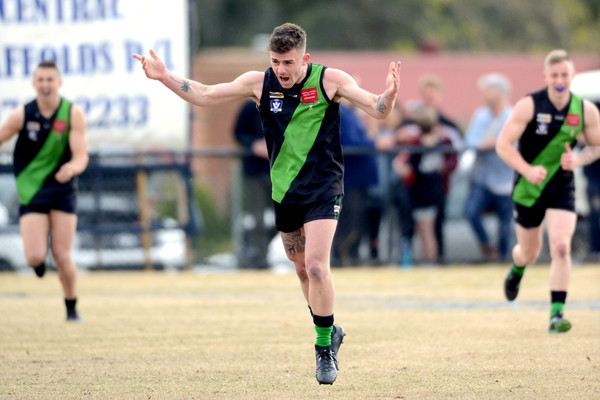
Known as much for his affinity with the bizarre drink combination of scotch and milk, Cranbourne life member Steve ‘Leggy’ Legg was also the club president for two years, including during its premiership-winning season of 1993.
He started as an unabashed fan of the club, before getting directly involved when his son played.
“My involvement was being quietly on the committee, and then I was president in 1993/94 but I was just part of a committee that was just fantastic to be a part of,” he said, adding the Eagles had seen more than their fair share of rough patches over the journey.
“As far as I’m concerned, if you’re a good president of a footy club, it’s only because of the quality of the people you have around you. We had half a dozen of us at least in 1993 and 1994 who were just workers – willing to do whatever we needed to do to help the club. One thing shits me about some people in footy clubs – they bitch and moan, but they won’t get off their arses and work.
“We’d all work together.
“The best thing I could say is how fortunate I was to watch such a fantastic side up close, and then be a part of the committee a few years later.”
The incredible era Legg was privileged enough to watch was in sharp contrast to his own Eagles playing ‘career’, which included one winning game of footy, in the seconds, in 1974.
“To go and watch those sides (of the ‘80s and ‘90s) go head-to-head at venues such as Hampton Park… the standard of the footy was sensational, skill-wise, but my god it was bloody tough.
“Neither side would take a backward step whatsoever.
“You’re out there having a red-hot go and you’d be found out if you were second to the contest.”
Like with so many great rivalries of its kind, the Cranbourne and Doveton story could be compared to relationship a younger brother shares with his older brother – the respect is there, but when they clash… it’s on!
“Through the early 1980s into the ‘90s, Doveton was always known as a tough side,” Legg explained.
“They’d go out and physically intimidate sides, and Nizza sorted those Cranbourne blokes out – in terms of how to deal with it.
“I don’t know whether they started to create some mental scarring of their own – I’m not sure – but for years before that though, Cranbourne was a real easy-beat side.
“He wanted to make sure his players would stand up, and potentially even cause some scarring of their own, and it must’ve worked.
“It was as if to say they wouldn’t be pushed around anymore, because they weren’t just going to take it.
“When Darryl left, what he’d already instilled in those kids is what they took on moving forward and taught the next group after them. They’d realise what winning football was all about. It was brilliant to watch. Darryl Nisbet was the man who changed Cranbourne Football Club culture.”
Toughness, togetherness, and a genuine sense of community – they were the common traits of the Cranbourne and Doveton senior footy sides that helped set them apart from the pack in South West Gippsland throughout the 1980s and 1990s.
Of course, no one is more revered at the Eagles’ nest nowadays than their former multiple premiership coach – Nisbet.
“All of our kids were very, very good – we weren’t just donating games to them because they were young and on the rise,” he explained.
“I trained them a lot harder than they’d been used to, but you go playing all those kids in games at the age of 18, and in three years’ time they’ve played 60-odd games and they know what the game is all about and they’re as tough and hard as Doveton was.”
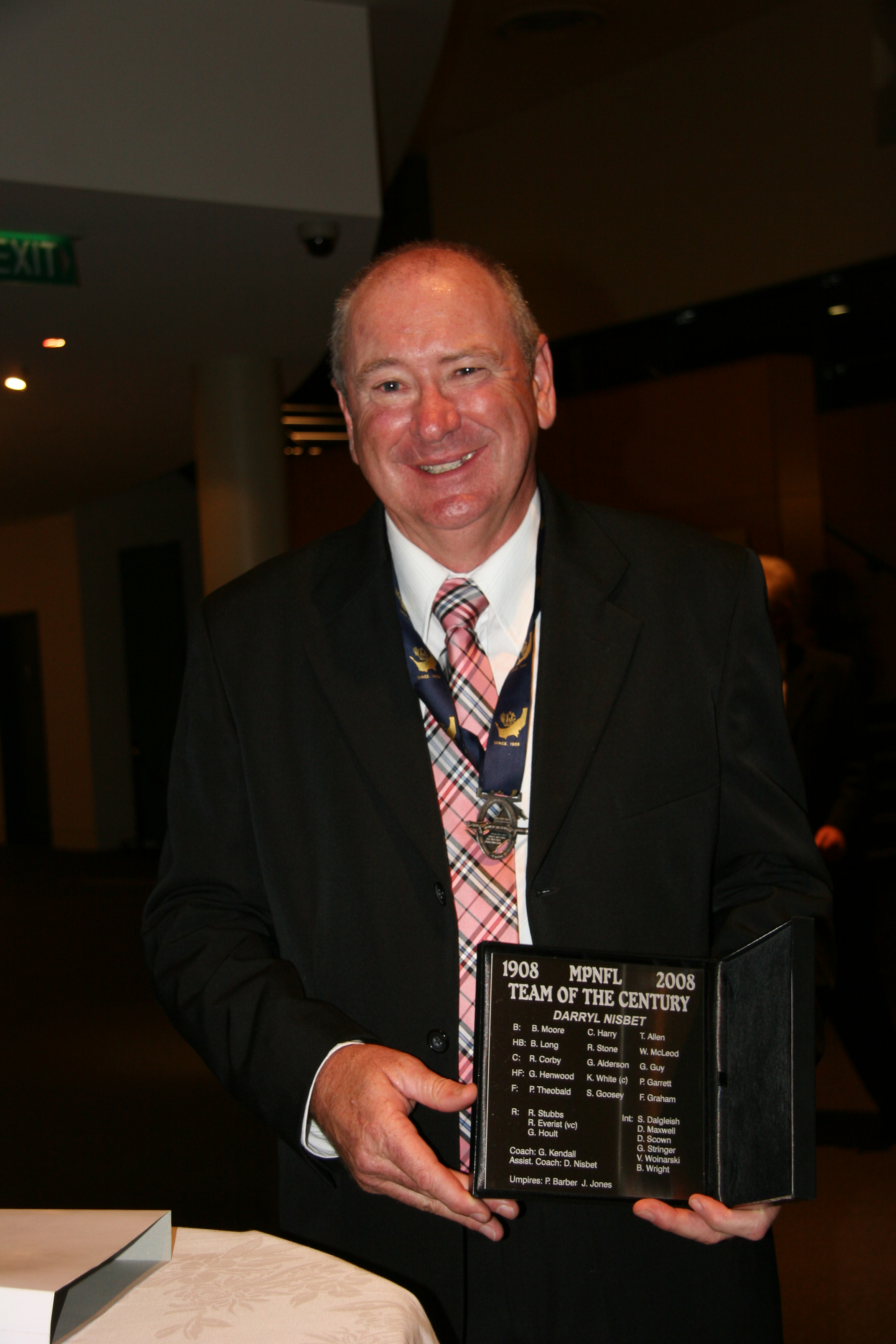
Nisbet said Doveton “had it all” back then.
“They were nasty and they were intimidating, but they were also extremely skilful and very disciplined in sticking to their game-plan,” he said of the Doves.
“They came from a tough town, but they were very, very good footballers and had a great culture to build from. It was their own culture, but they were well-coached by the likes of Steve Henwood and (Frank) Rocky Clifford.”
All these years later, Nisbet and Clifford are the best of mates – catching up weekly for a drink and a game of golf.
Nisbet looks back now on what was such a special time, when the two were the best of enemies – on-field, at least.
“Where we stood up was in that grand final of ’85 – that’s when we became the club Doveton was,” he explained of his time at the Eagles’ helm.
“Doveton had killed us in the second semi – they really wiped the floor with us.
“Playing Hampton Park, it was at the 22-minute mark of the last quarter that was a turning point. Until that stage, Cranbourne had always wilted.
“I think Leo Hermans came off the back pocket and kicked a goal and it lifted us over that tough period and we ended up winning.
“The next week against Doveton – after they’d beaten us easily earlier in the finals – the 22-minute mark again was the cracking point and away we went and kicked a couple of goals at that period. It was like having your first beer!”
Nisbet said it was particularly telling that his boys were able to take it right up to the dominant, intimidating force of the Doves.
“Doveton was a really hard side, and they’d bluff sides,” he explained.
“They’d run out against the Pines when the whole league went into the Mornington Peninsula competition and both sides had the same reputation – no one was watching the footy, put it that way!
“But they had some brilliant players too – in that era Carlton had this really good mosquito fleet in the VFL, and Doveton was the same in our neck of the woods.
“When the ball hit the deck, they were off and gone. They had great finishers – they had the works.”
From Nisbet’s perspective, it’s no surprise that Cranbourne’s rise as a force coincided with the rise of the Garrett and Dalgleish brothers.
And, through the likes of the Henwoods, Doveton had extremely similar DNA.
“Those boys (the Garrett and Dalgleish boys) had only just put their foot in the door – that was just the start – but the good thing was they didn’t fall away from those times,” Nisbet said.
“Those blokes all learnt the right way to play footy at the time, and could really play.
“They were bloody good players.”
The 1987 decider is infamous for its brutality, with bodies dropping left, right, and centre.
“Afterwards when we drank from the premiership cup it was half-full of blood – and that’s no exaggeration,” Nisbet explained.
“We kicked 10 or 11 goals in the first quarter, and we were unbeaten that year and drew a game with Doveton in one of the last games of the season in really foul conditions.
“We were lucky to get out of it, but in the finals we just blitzed them and did to them what they used to do to us.”
The ’87 grand final was littered with reports, but these were the days before players could be sent off.
“Stuey (Batten) came out and dropped these blokes bigger than him, and he went to hit Brutus (Steve Dalgleish) and Brutus must’ve seen his shadow and spun around and I just said ‘let him live, Brutus – let him live!’,” Nisbet recalled with a chuckle.
“Later on, Stuey could have just about killed my young bloke, Rhys, in a game but he let him go.
“We weren’t brothers or anything, but we all became very close because of the respect between us. We earned their respect, and that was the best thing.
“They were hard and ferocious – they were the best side going around, and it always felt better beating them.”
For Nisbet, the fact that so many of the Eagles’ most significant wins in that era came against Doveton only served to heighten their meaning.
“There’s no hatred there – quite the opposite – it’s just that as a coach, you’d just hope the boys would stand up to a side like Doveton… that they’d have the courage to stand up and be at their best,” he said.
“With Doveton, everyone else was frightened of those boys. You had to get your players to a point where they were brave enough to take them on and beat them. It was a sort of ‘do unto others as you would have them do unto you’ sort of thing. It was the golden rule.”
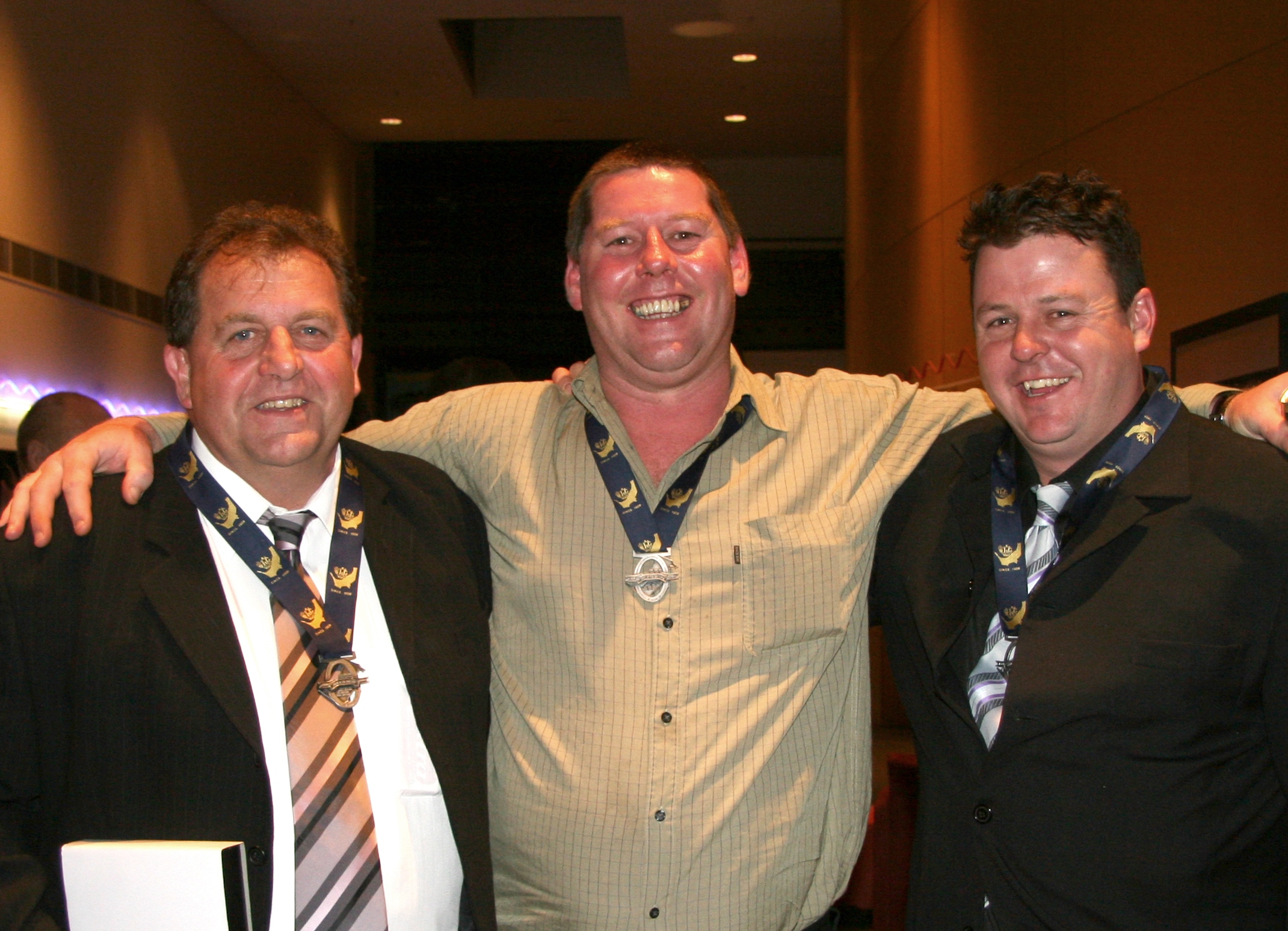
Doveton club icon and former player-coach Steve Henwood explained just what the rivalry entailed, from his point of view.
“They were very skilful and they were very tough as well, and then they went on to beat us in ’85, ’86, and ’87 – three in a row,” he said of the Eagles.
“We’d played in a lot of grand finals, but losing three in a row wasn’t nice – especially to the one club.
“We played off again in ’88 and got one back – we had a good side, and so did they, but they probably suffered a little bit from complacency like we did after winning our three in a row. We all know it’s hard to win three on the trot, and it’s that much harder to win four.”
Famously, the Eagles stopped the Doves in their quest for four in a row, and the Doves did the same to them.
“During that period through the mid-‘80s we fell away to eight clubs in the competition so we ended up playing a couple of the clubs three times in a season,” Henwood explained.
“As the draw turned out, we played Cranbourne three times during the home and away (season) for two years in a row, plus the second semi-finals and the grand finals. So at one stage there we played each other 10 times in two seasons.
“No wonder we knew each other so well! I reckon back then I could name their team they were going to select each time and I would have only been maybe a player out – and they could have done the same with us.”
Henwood still marvels at what the two sides accomplished against each other back then, but he doesn’t exactly wish for all their exploits to be replicated in the modern era.
“It was a terrific era – great footy from two really good sides – but there were a lot of punch-ons back then, and thankfully that is in the past because you don’t want to see that stuff again,” he said.
“At the end of the ’87 grand final there would have been maybe five players from each side in hospital. That was just madness.”
It all stemmed from the refusal of both playing groups to back down.
“You’d want to get that edge if you could – neither side would want the other to intimidate them so, as we’re all aware from footy back in those days, if someone started something you’d want to square up to them,” Henwood said.
“Truth be told, both sides had quite a few suspensions from our matches.
“But I don’t want to let that overshadow things too much, because it was just great, tough footy.
“Funnily enough, I look back with great fondness at our effort to be beaten by the same club three times in a row.”
Henwood looks back on that rival Cranbourne side with nothing but respect, and that’s a feeling shared from both sides of the divide.
“Cranny did the right thing – they went and signed an experienced coach in Darryl – and they basically had a third of their side made up of two sets of brothers in the Dalgleishs and the Garretts, and they were all terrific players,” he said.
“They were the nucleus of the side and they built around them with some good footballers and some hard footballers, and they were really physically strong.
“They were just so hard to play against – I’ll never forget it. There were definitely no easy kicks on offer when you played them.”
And the scenes in the after-match would prove as much.
“Everyone would stay for hours in each other’s rooms after our games and there’d be blokes everywhere with cut lips and bent noses having a beer together as if nothing had happened. It was a pretty special time,” Henwood said.
“That was almost all we did – we played footy in the winter and cricket in the summer and that was our lives. It was automatic to go into the rooms and socialise with the opposition, and sadly there isn’t quite as much of that these days.
“The Dalgleish boys would stay back in our rooms after a game and I loved a beer, and still do, and I was wishing they’d go home – I couldn’t drink any more!
“I’ve always said this about footy clubs – you can dislike the blokes you’re playing against on the day, but when you meet them away from the field, you find out they’re all pretty good blokes and everyone is just out there trying to win for their jumper.
“Those days would put young blokes in pretty good stead for their development as people moving forward – to be able to play a hard, competitive game like Australian Rules.”
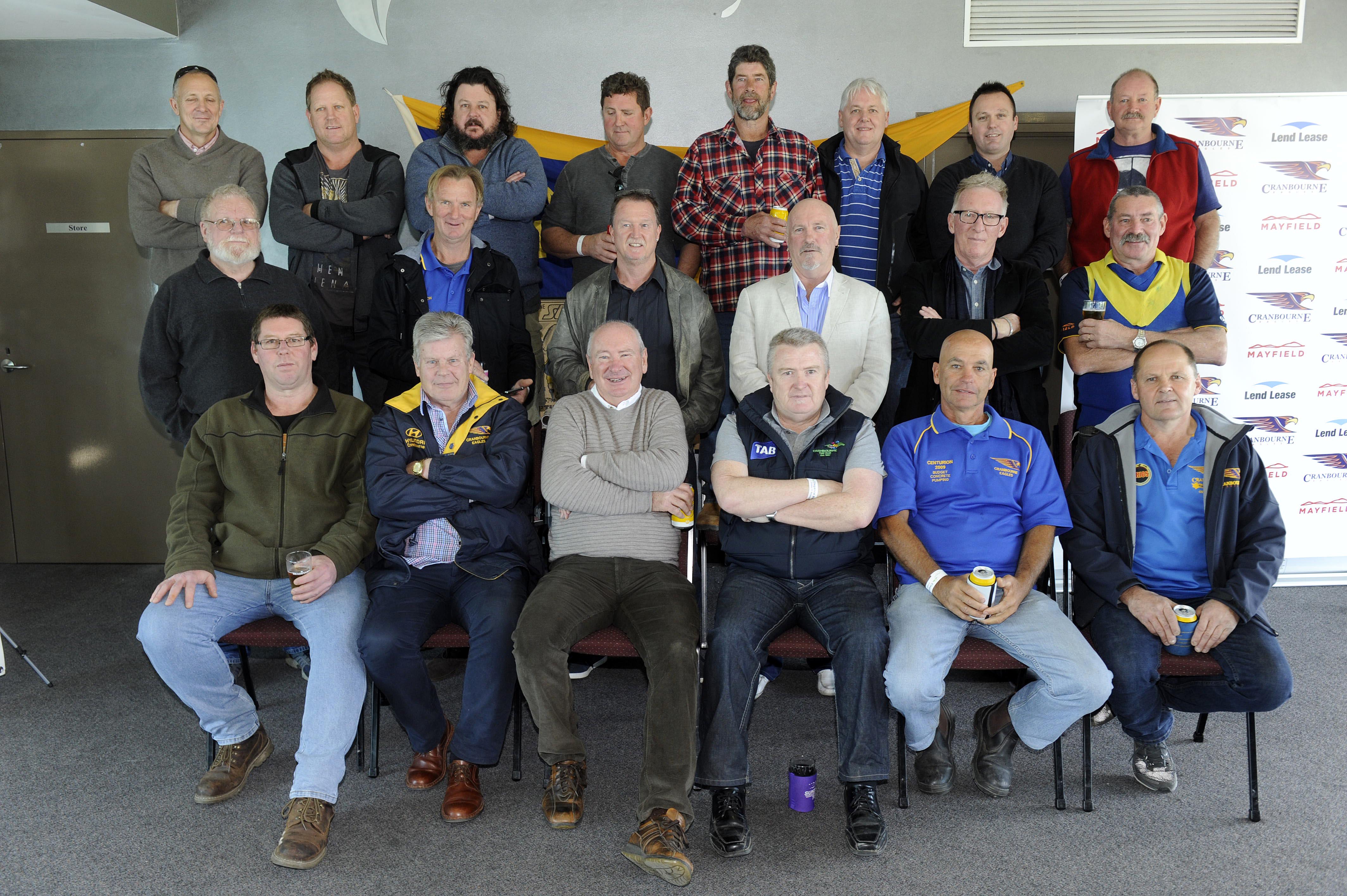
Paul Garrett Sr is a life member of Cranbourne, a former president, and the father of the three Garrett boys of the Eagles’ famous era of dominance – Paul Jr, Pat, and Chris.
“I first started watching Cranbourne in 1983 when my son Paul, who was 17, started playing in the seniors,” he explained.
“They were a very ordinary side – I think we were last or second last, thereabouts, and they didn’t have much of a following at all.”
But the signing of Nisbet, and the rise of the Eagles’ young guns, changed all that.
“We went from being a final four side, to being a real contender,” Garrett said.
“Doveton was still the overwhelming favourite (in 1985), and they beat us in the semi, but we overcame Hampton Park in the prelim in a fantastic game and the same thing happened against Doveton in the grand final.
“Chrissy, who’d just turned 16, won the best on ground medal and I remember it clearly. He won half a dozen tankards and a box of beer, and I told him he couldn’t have the beer but he could keep the tankards!”
Pat missed the grand final after having his jaw broken in the second-semi, but – as his father recalled – he went on to win the best and fairest by a vote – from his younger brother, Chris.
“And in 1986, that was probably the best Cranbourne side I’ve seen,” Garrett Sr said.
“They got a couple of even more promising juniors and they didn’t lose a game all year – they drew one though. I’ve got nothing but admiration for all those Doveton boys. Rocky (Clifford) and I have been mates for years – even from well before the Doveton and Cranbourne days.”
The three Garrett brothers were all standouts in their own right and, unlike their old man, all left-footers.
Paul Jr returned to Cranbourne from a stint at Hawthorn – adding to the Eagles’ firepower; Chris, unluckily, suffered some serious injuries – including a bad ankle on the MCG in a grand final for the St Kilda reserves; and Pat – a running flanker who also spent time on the ball – went on to be named in the Mornington Peninsula Team of the Century along with Nisbet (assistant coach), ‘Gug’ (Graham Henwood), and ‘Brutus’.
From his own perspective, looking back over his time as Cranbourne president, Paul Sr said he was “lucky” with the quality of the players and club people he had around him.
“But I was completely ignorant about what I was getting into,” he admitted.
“I learnt on the job, and I learnt to say ‘sorry’ a lot.”
Like his great mate Nisbet, Frank ‘Rocky’ Clifford is one of the most revered coaches of the local region.
His last game for his beloved Doves was in 1985 – the start of that Cranbourne three-peat.
“We won the second semi pretty comfortably and my recollection of it was that we were probably a bit over-confident,” he acknowledged.
“We had a team meeting at Steve’s (Henwood’s) place on the Thursday night of the grand final and watched a bit of a replay of Cranbourne’s win in the prelim and the boys were a bit cocky and it worried me a bit.
“Darryl went in with a plan – he heavily tagged four players and I was one of them. “He put a young (Andrew) ‘Boo’ Dalgleish on me. I’ve told Darryl this since – I went to the toilet at half-time and it was like Boo was standing next to me! (laughs).
“That’s how close the tag was! He was an 18-year-old spring-heeled Jack with a bit to prove and he tagged me heavily and shut me out of the game.
“Darryl’s other tags worked pretty well too and they got over us. He was a very good coach and he’s now one of my best mates, so I can understand why his players loved him.”
And Nisbet, Clifford, and another of their great mates – (Rod) ‘Darky’ Evans – all share a unique bond.
Not only are all three premiership-winning mentors, so are their sons – Rhys, Leigh, and Clint.
“Back in the ‘80s though, Darryl wasn’t shy of giving you one as quick as look at you,” Clifford said with a laugh.
“In the grand final it was pretty much discussed that we’d beat them if we played footy, but if they wanted to fight us, and we got sucked in, we’d be in trouble.
“Anyway, 10 minutes into the second quarter ‘Gug’ was knocked out and we hung back and did nothing.
“They knew they had us then – Darryl’s told me that since.”
Clifford’s respect of Cranbourne is epitomised by the respect he still has to this day for his former tagger, Dalgleish.
“Boo tagged me in that grand final, and many years later I was rapt that Cranbourne brought me along to their testimonial for him as a guest speaker,” he said.
“That’s how close the two clubs were. I was just rapt to be asked to speak about Boo.
“With Cranbourne we had a great rapport. We were this housing commission club, but we used to gain our strength from that.
“They called us ‘Struggletown’ for a while there but we grew inspiration from that for a lot of years.
“Cranbourne was much the same – a real working class area.
“I can recall being on the ground and getting sledged about where we were from, but we grew strength from it.”
Clifford is proud of his background. It’s helped shape who he is.
“I haven’t got a problem telling anyone that I grew up in the commission. Stuey Batten’s dad taught me that,” he said.
“Most of the best people I know are the people I’ve met in Doveton.
“I’m very good mates with a lot of people from those days, who grew up in the school of hard knocks and made lives for themselves.
“John Walker was one of them and he ended up the (first ever) CEO of the West Coast Eagles.
“He grew up in a commission home and I played in a premiership with him.
“We all learned so much from the community we grew up in.”












